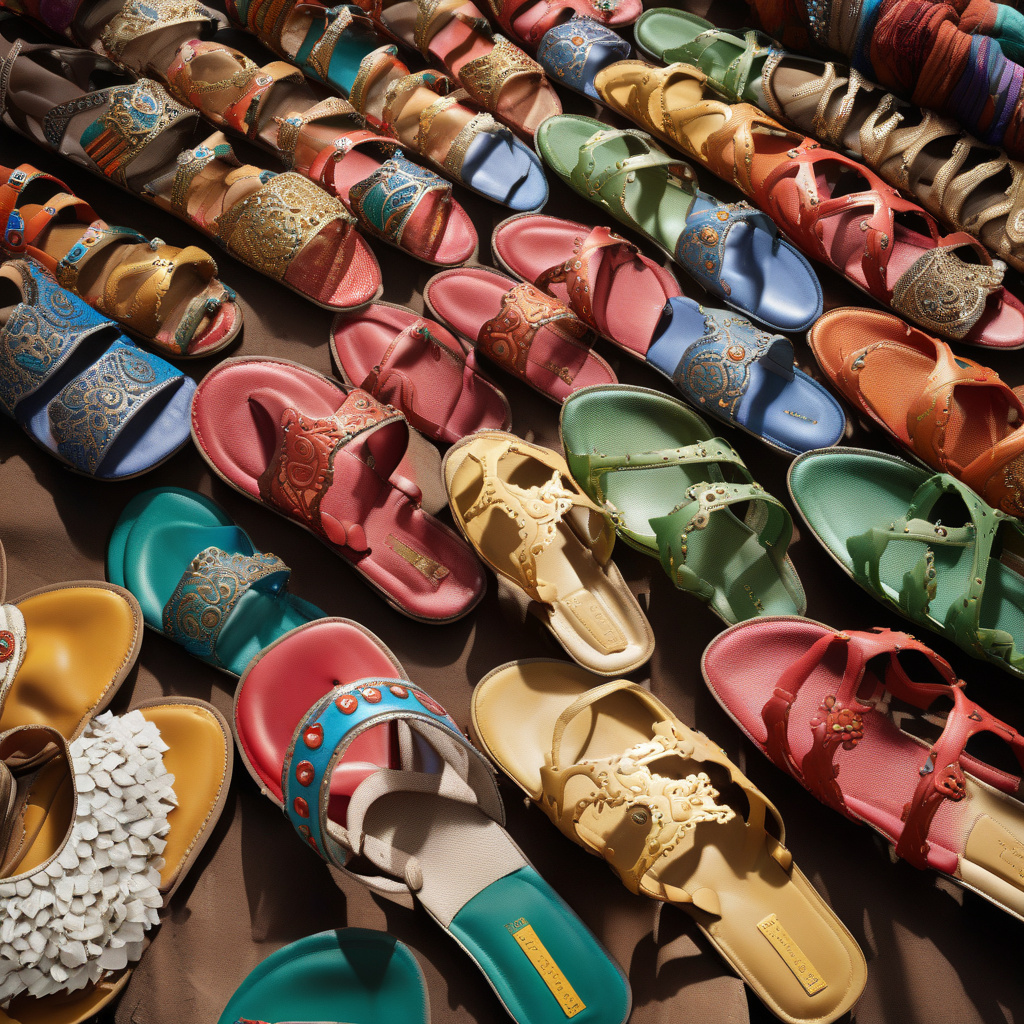After Prada ‘Sandal Scandal,’ Indian Sellers Tap Nationalist Pride to Boost Sales
In the aftermath of the Prada ‘Sandal Scandal,’ a remarkable shift has been observed in the global fashion market. The controversy surrounding Prada’s runway show, where a design strikingly similar to the traditional Indian ‘Kolhapuri’ sandals was showcased without acknowledging its origins, has inadvertently catapulted the humble indigenous footwear to the spotlight. This incident not only ignited a debate on cultural appropriation but also served as a catalyst for Indian sellers to leverage nationalist pride and propel the sales of the authentic ‘Kolhapuri’ sandals to unprecedented heights.
The ‘Kolhapuri’ sandals, named after the city of Kolhapur in Maharashtra, India, have long been cherished for their exquisite craftsmanship, durability, and timeless appeal. However, they remained relatively niche in the global fashion scene until the Prada controversy brought them widespread attention. The stark resemblance between Prada’s high-end version and the traditional Indian sandals fueled outrage among consumers and designers alike, shedding light on the often-overlooked contributions of indigenous artisans to the fashion industry.
As a result of this inadvertent exposure, sales of authentic ‘Kolhapuri’ sandals have witnessed a significant surge in recent months. Indian sellers, recognizing the unique opportunity presented by the controversy, have strategically positioned the sandals as a symbol of national pride and cultural heritage. By emphasizing the rich history and craftsmanship behind each pair, sellers have successfully tapped into the emotional connection that consumers have with their cultural identity, driving demand for the handcrafted footwear.
One of the key strategies employed by Indian sellers to boost sales is the emphasis on authenticity and ethical sourcing. By highlighting the traditional techniques passed down through generations and the use of locally sourced, sustainable materials, sellers have managed to differentiate the genuine ‘Kolhapuri’ sandals from mass-produced imitations flooding the market. This commitment to preserving the integrity of the craft not only enhances the perceived value of the sandals but also resonates with socially conscious consumers seeking ethically made products.
Furthermore, the ‘Kolhapuri’ sandals’ newfound popularity has transcended borders, attracting a global clientele eager to embrace artisanal craftsmanship and support indigenous communities. Fashion enthusiasts worldwide are increasingly drawn to the sandals’ unique design elements, such as intricate hand weaving and vegetable tanning, which set them apart from mainstream footwear options. The authenticity and cultural significance embedded in each pair of ‘Kolhapuri’ sandals resonate with consumers seeking to make a statement through their fashion choices while honoring traditional artistry.
In conclusion, the Prada ‘Sandal Scandal’ may have inadvertently sparked a global conversation on cultural appropriation, but it has also served as a powerful reminder of the importance of recognizing and respecting traditional craftsmanship. By leveraging nationalist pride and highlighting the cultural heritage behind the ‘Kolhapuri’ sandals, Indian sellers have successfully capitalized on the controversy to boost sales and elevate the profile of this iconic footwear. As consumers increasingly prioritize authenticity and ethical practices in their purchasing decisions, the rise of the ‘Kolhapuri’ sandals stands as a testament to the enduring appeal of heritage craftsmanship in a rapidly changing fashion landscape.
heritagecraftsmanship, kolhapurisandals, ethicalfashion, culturalappropriation, nationalpride












